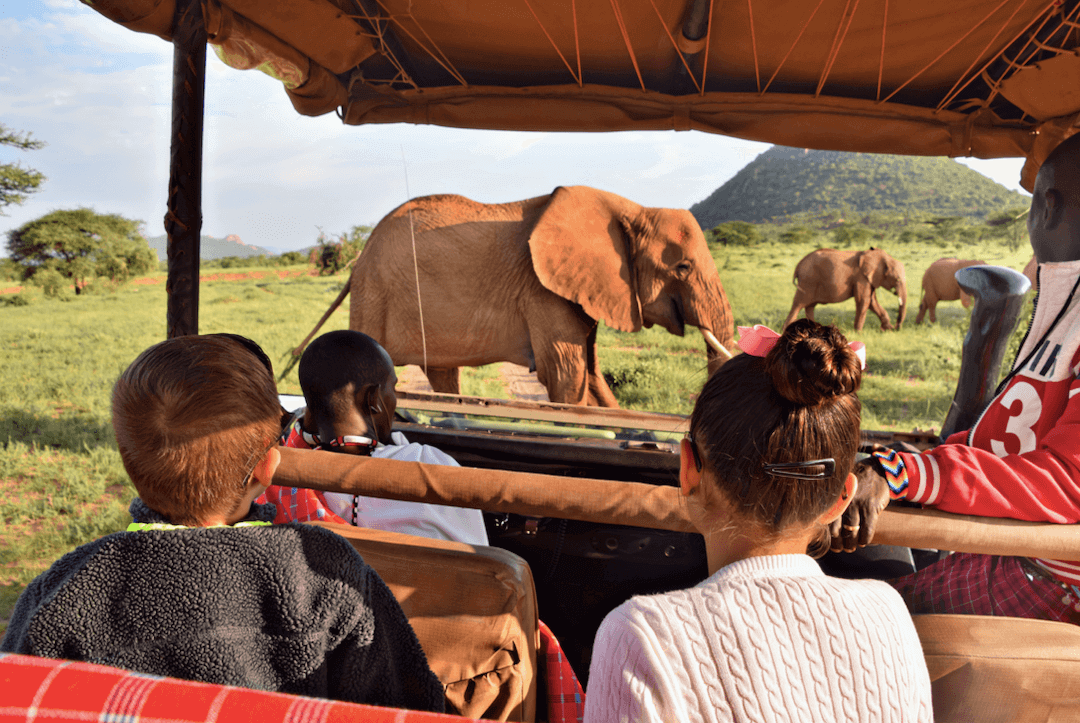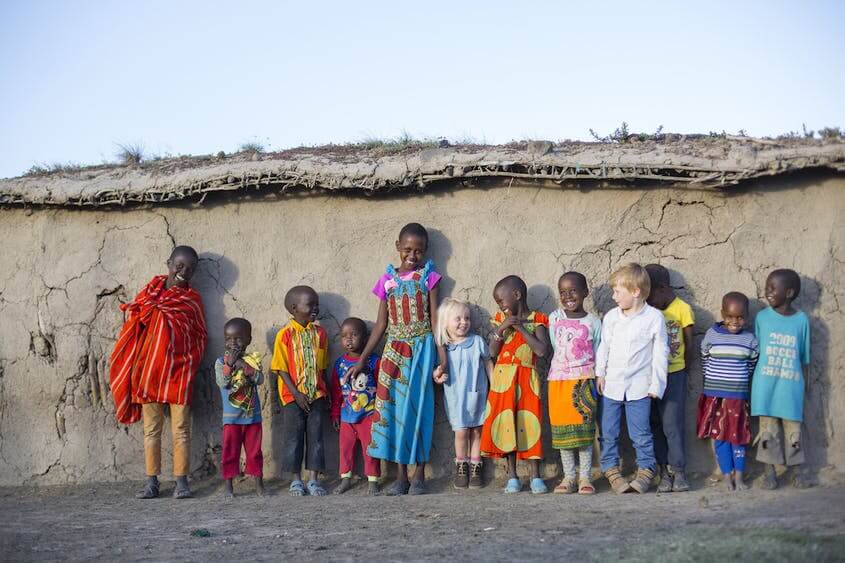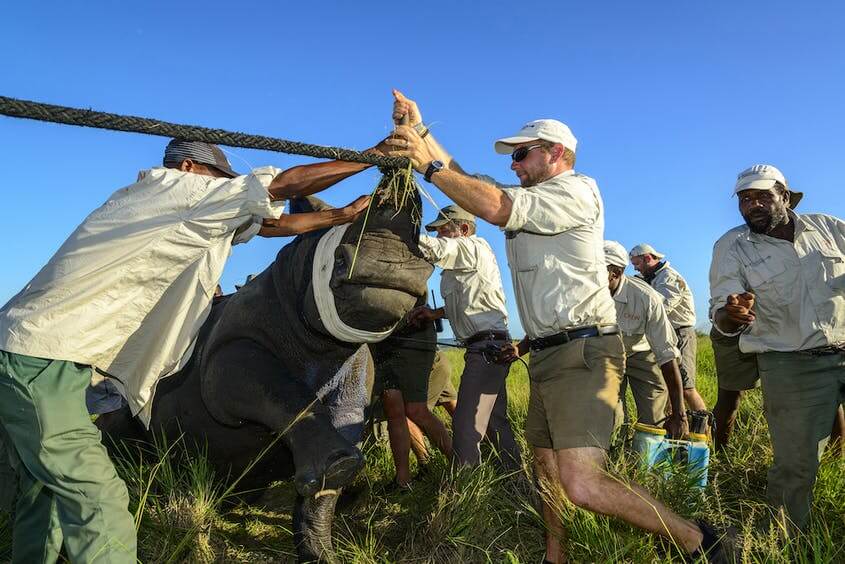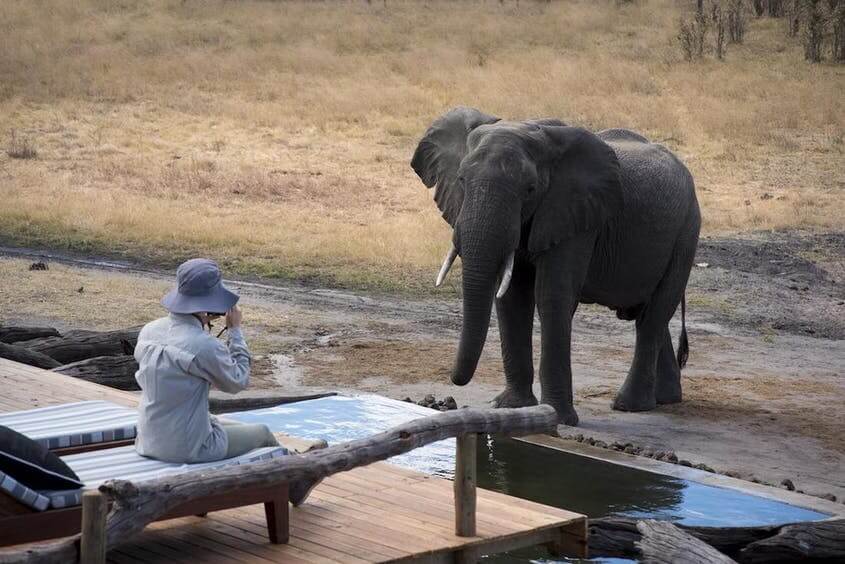The Future of Africa’s Wild Landscapes: Why Safaris Matter
By Tully Luxury Travel | 05-07-2020 |
Africa's natural ecosystems and the communities that depend on them face an uncertain future. Discover how your safari experience contributes to the broader conservation efforts shaping this vital story.

Why Tourism Matters
Travel and tourism make up more than 7 percent of the total economy in Africa, according to the World Travel & Tourism Council. International visitors alone brought in $61.3 billion in 2019, the main draw being Africa’s unparalleled wildlife experiences. The travel industry was also responsible for one in four new jobs over the past five years.
Yet even with these financial incentives, cash-strapped governments—overwhelmed by humanitarian issues on a continent that’s considered the last frontier of extreme poverty—often have trouble managing and funding their own parks. South Africa’s national park system is one of the most well-funded in Africa, but only a quarter of its budget comes from the government; the other 75 percent comes from park and private concession fees. And that’s where tourism dollars and donor funding step in.
Tourism creates work for people in rural areas where there are few income prospects, such as hospitality, park jobs, or produce and other supplies for camps. It often pays for park security. In Namibia, for example, tourism fees pay for the country’s 600 game wardens; in Zambia, those fees support 90 percent of the more than 1,000 scouts, all hired directly from the community.
Tourism has also proven to government officials that there’s value in preserving land and wildlife rather than developing or exploiting it. African Parks, a conservation NGO that uses tourism revenue to supplement donor funds, enters into long-term partnerships with governments to finance, rehabilitate, and manage threatened parks that have lacked the resources needed for adequate management and protection. It has introduced tourism into most of its parks, including Rwanda’s Akagera National Park, which is 90 percent self-sustained through tourism.
"We require that all governments allow any tourism receipts in the parks that we manage to stay in the park in order to become the sustainable base for conservation funding costs," says Peter Fernhead, the cofounder and CEO of African Parks.
That conservation-as-business model is key to the future of conservation, according to Elizabeth Ojo, the director of operations for the School of Wildlife Conservation at African Leadership University in Kigali, Rwanda. The school offers undergraduate and MBA degrees in conservation, which includes training in regulations and management styles and research on developing wildlife economies.
“At the moment, ecotourism is one of the major revenue models for conservation projects, so any conversation about the business of conservation would be hard pressed to omit it,” says Ojo.
Beyond jobs, responsible operators also bring enormous amounts of support to communities. In 2018, I got a firsthand look these benefits in Tanzania’s Grumeti Reserve, a 350,000-acre private reserve where Singita has created a visionary tourism model that goes hand in hand with the conservation efforts of the reserve’s Grumeti Fund, a nonprofit group that works on wildlife conservation and community development in and around the reserve.
I toured Singita’s onsite cooking school, which subsidizes the culinary education of promising young cooks from the community. I attended one of the Grumeti Fund’s women’s empowerment events, where Vanessa Mdee—Tanzania’s Beyoncé—talked to young girls who live around the reserve about topics such as menstruation and female genital mutilation. I also saw an inspired Singita guest return from a game drive at lunch one day intending to make a large donation to the Fund.
The big question, though, is what happens when tourism stops—and what must happen for conservation to continue when those visitors are no longer coming.

Guests of Asilia Africa visit a community conservancy in Kenya’s Maasai Mara.

Rhinos Without Borders, a collaboration between Great Plains Conservation and and Beyond, has relocated 87 rhinos from South Africa to Botswana, which is considered a safer haven for the endangered animals.
Power in Numbers
“If there’s no cash for conservation, it’s merely a conversation,” says Colin Bell, a longtime conservationist based in Cape Town and cofounder of Natural Selection, a collection of owner-operated safari camps, which commits 1.5 percent of every guest's stay to conservation projects in areas where they operate. “We need to find money somehow to run the management of our parks and the conservation initiatives. If there’s no money on a sustainable basis, we have no chance of making these parks viable in the long term.”
One of the big lessons that many ecotourism companies are learning as they deal with the pandemic is the importance of reserve funds. Great Plains’ Joubert is currently exploring a possible endowment-style model that would attract large funding that could float conservation efforts when disaster hits and tourism dollars stop flowing in.
Joubert is one of many conservationists who are also underscoring the importance of collaboration between competing camps and lodges when dealing with complex issues that are too enormous to tackle individually. Some early efforts have already happened to that effect. In recent years, Rhinos Without Borders, a partnership between Great Plains and andBeyond, has relocated 87 rhinos to date from South Africa to Botswana, which is widely considered a safer haven. The Lionscape Coalition is a group of leading African tourism companies that pool funds for lions—whose population has decreased by half in the past 25 years—and allocate them to what they collectively deem the most urgent projects in countries where the companies have lodges.
But those examples are still few and far between, says Les Carlisle, the group conservation manager of and Beyond, which has 29 lodges in seven African countries. “We can compete for guests that travel with us—that has a place—but on a conservation management level, we have to work together on all aspects. That’s a big opportunity moving forward."

An elephant sighting at Somalisa Expeditions, a mobile camp run by African Bush Camps in Zimbabwe’s Hwange National Park
How To Help
If you had a trip to Africa planned, it’s best to postpone and reschedule your trip, rather than canceling, to keep those crucial funds in place while camps and lodges remain shuttered. Or consider donating to one of the organizations and foundations that are doing vital work.
When the travel industry is in full swing, African Bush Camps Foundation usually puts $10 of every bed night from African Bush Camps into community empowerment projects, and now those funds are supporting the transport of such basic items as water and food, which have become less accessible since the lockdown.
African Parks, which commits 100 percent of its donations to conservation in the 17 national parks where it works, has lost 10 percent of its budget due to lack of tourism. It is now aiding communities with essential supplies and hand washing stations, in addition to continuing essential park maintenance duties.
andBeyond’s Africa Foundation is getting crucial medical supplies to local communities and enabling access to fresh water through borehole creation and the distribution of portable, 24-gallon barrels for transporting and storing large amounts of water.
Great Plains Foundation recently launched its Project Ranger initiative to support the rangers in Africa who are on the front lines of the continent’s anti-poaching efforts and are at risk of losing their jobs.
Singita partners with nonprofit organizations in each of the countries where it operates. They include the Malilangwe Trust in Zimbabwe, and the Singita Lowveld Trust in South Africa.
Wilderness Safaris supports many different wildlife, community, and research projects in the areas where the company operates through the Wilderness Wildlife Trust, while the ecotourism company’s Children in the Wilderness program focuses on conservation education and leadership development for youths.







